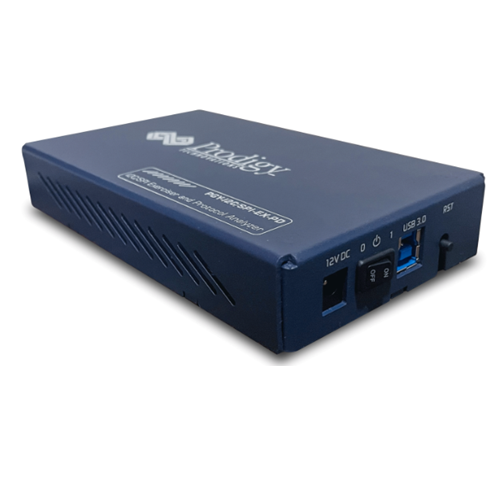I2C is a two-wire interface to connect low-speed devices like microcontrollers, EEPROMs, A/D & D/A converters, I/O interfaces, and other small peripherals in embedded systems. The I2C bus is used by many ICs and is simple to implement. Any microcontroller can communicate with I2C buses. I2C buses can communicate on slow devices and can also use high-speed modes to transfer large amounts of data.
SPI is one of the widely used interfaces between micro-controller and peripheral ICs such as sensors, ADCs, DACs, shift registers, SRAM, and others. SPI is a synchronous, full-duplex master-slave-based interface. Both master and slave can transmit data at the same time. The SPI interface can be a 3 wire or 4-wire.
PGY-I2C/SPI-EX-PD is the leading instrument that enables the design and test engineers to test the respective I2C or SPI designs for their specifications by configuring PGY-I2C/SPI-EX-PD as master/slave, generating I2C/SPI traffic and decoding I2C/SPI Protocol decode packets.
Features:
- Supports I2C Specifications
- Supports SPI Specifications
- Ability to configure it as Master/Slave
- Generate different I2C/SPI Packets
- Variable data speeds
- Generate I2C/SPI traffic and protocol decode of the bus
- A timing diagram of the protocol decoded bus
- Listing view of protocol activity
- Ability to write exerciser script to combine multiple frame generation at different data speeds
- USB 2/3 host computer interface
- Continuous streaming of protocol activity to host system HDD/SSD
- API support for automation in python or C#


